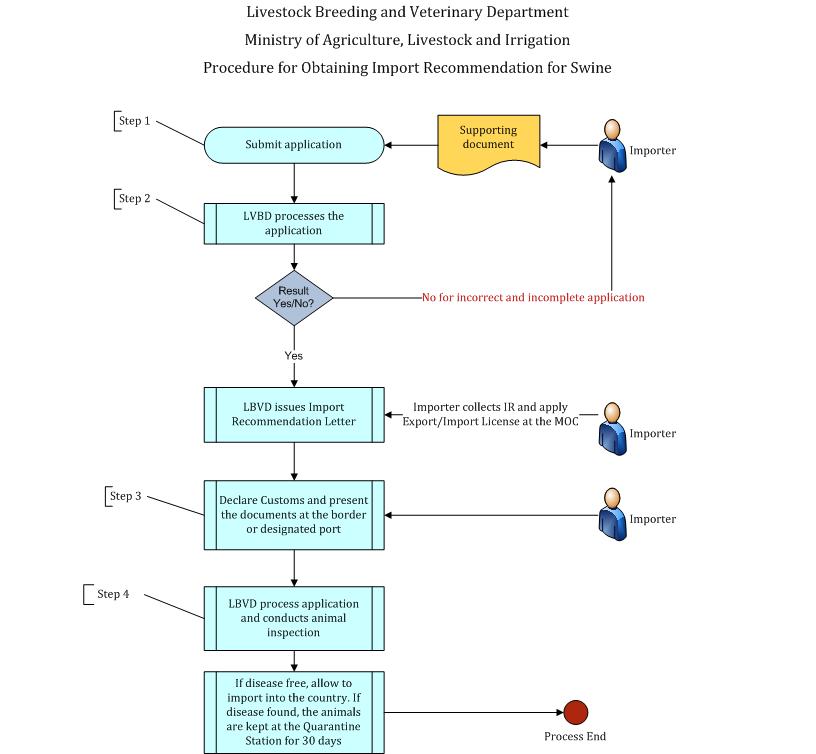Procedure for Obtaining Import Recommendation of Hatching Eggs, Poultry/ Birds and Swine into Myanmar
| Category | Import |
| Picture |

|
| Summary | Procedure for the Importation of Hatching Eggs, Poultry/ Birds and Swine into Myanmar issued by Livestock Breeding and Veterinary Department of the Ministry of Agriculture, Livestock and Irrigation |
| Description | Livestock Breeding and Veterinary Department Ministry of Agriculture, Livestock and Irrigation Procedure for the Importation of Hatching Eggs, Poultry/ Birds and Swine into Myanmar Step (1) A person importing swine shall apply a recommendation certificate to the Livestock Breeding and Veterinary Department (LBVD) along with the following supporting documents.
Step (2) LBVD shall check and review on the completeness of the application and register the documents. For the incomplete and incorrect application, LBVD informs the importer with reason. The importer corrects, completes and resubmit the documents. If application is rejected, the process ends here. For the complete and correct application, the LBVD shall issue the Import Recommendation certificate. After receiving the import recommendation certificate from the LBVD, the importer shall continue to apply the import license at the Ministry of Commerce. Step (3) Upon the arrival at the designated port or border gate animal quarantine stations of Myanmar, the importer shall submit the Import Declaration with relevant documents to the Customs Department and the LBVD for laboratory test via the Myanmar Automated Cargo Clearance System (MACCS). LBVD shall examine the swine and check the documents such as a health certificate signed by authorized Veterinary Officer, including the individual identification of importing animals, recommendation certificate issued by the LBVD, import license issued by the Department of Trade under the MOC, original Veterinary Health Certificate issued by the Veterinary Authority of exporting country, packing list and bill of lading/Airway bill and PC3 for border trade importation. Step (4) If the lab test is provided with the negative result from the described diseases for swine, LBVD shall issue the Veterinary Health Certificate (VHC) to the importer. The LBVD shall, with the approval of the Ministry establish Inspection Stations in required regions for inspection of imported live animals. The importer shall pay the quarantine fee, laboratory testing fee and Health Certificate fee (2000 Kyats per head) as determined by the LBVD. Remark- The overall process will take from 7 to 10 days.
|
Forms
The following form/s are used in this procedure.
| Title | Description | Category | Agency |
|---|
